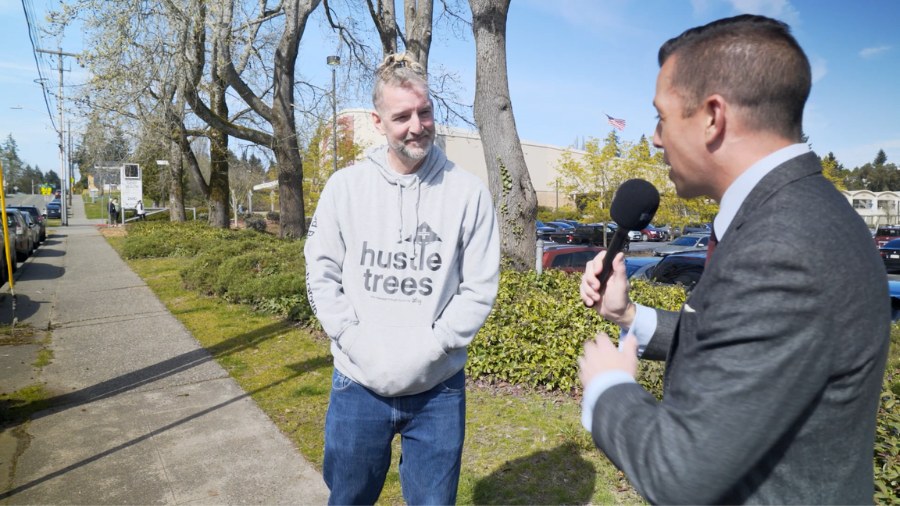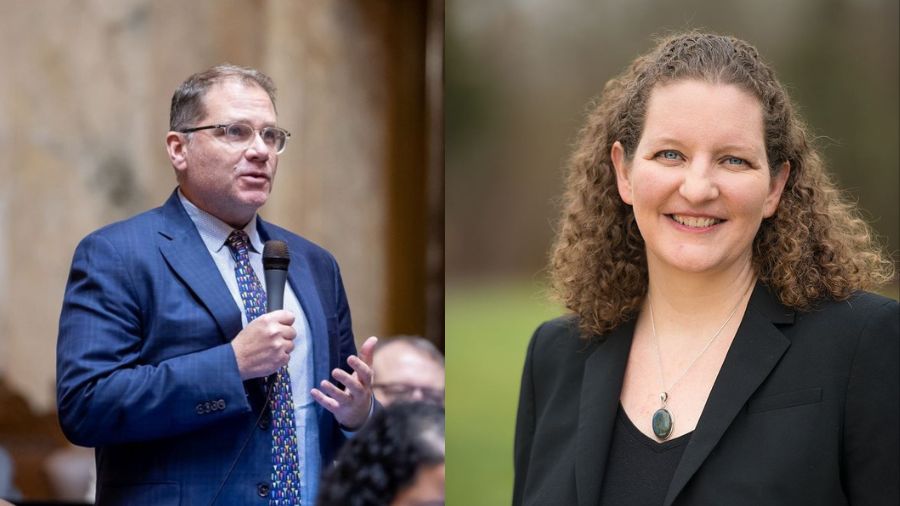Head tax: What happens in Seattle doesn’t stay in Seattle
May 16, 2018, 3:00 PM | Updated: 3:14 pm

Seattle's Central District overlooking Lake Washington and the Eastside. (Joe Wolf, Flickr)
(Joe Wolf, Flickr)
What happens in Seattle, doesn’t stay in Seattle. Just ask Washington State Senator Mark Mullet.
RELATED: State Legislature could forcibly halt Seattle’s job tax
When Mullet is not working in Olympia, he’s a small business owner. He operates a range of pizza and ice cream shops in Issaquah and Bellevue. Now that Seattle has passed a head tax, he’s worried about the affects on his businesses outside of the city.
“I have Ben & Jerry’s ice cream stores and pizza restaurants on the Eastside, none of them are in the city limits (of Seattle) that I own,” Mullet told KTTH Radio’s Jason Rantz. “All my customers … they all work for the large regional employers in Puget Sound, whether that’s Starbucks or Amazon, it doesn’t matter. So my growth in my business over the last six years that’s been because these companies have been hiring people. As people move here and have good-paying jobs, they buy pizza and ice cream.”
“Once those jobs go away, my customers go away,” he said. “That’s the real challenge of what Seattle is doing. It makes it difficult for small business owners. The idea it’s only impacting 3 percent of businesses is sheer insanity. Those 3 percent of businesses employ half of the people in Seattle. And that trickles down to every business outside the city where those people actually live.”
Nervous about the head tax
Mullet says the small business community outside Seattle is very nervous about the region’s economy. Growth is good for them.
RELATED: Does Seattle’s job tax violate state law?
“We’re sending a message to the rest of the country that we’re going to penalize you for creating jobs here,” he said. “….The policies they are voting on are having huge impacts on my ability to be a successful small business owner in Issaquah. It’s frustrating.”
It’s also awkward for Mullet, a Democrat speaking about a city council that is predominantly left-leaning.
“I believe they are bad for the Democratic brand,” Mullet said. “I think the brand of Democrats is that we want to create jobs in this state and if you have a municipal body sending the opposite message you have to break ranks with them …. It only takes me 20 minutes to drive down to meetings in Seattle, but I feel like I’m some Republican from Alabama when I get there. Even though we are all Democrats, I’m like, ‘Man, how can we all be Democrats.’ They are so far left of me.”














